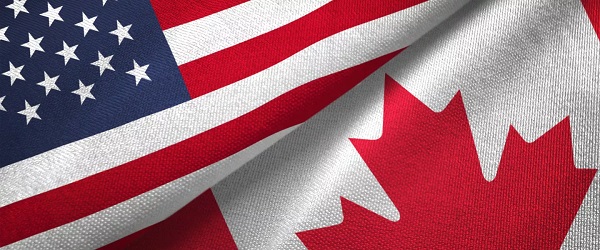Business
Our energy policies have made us more vulnerable to Trump’s tariffs

From the Fraser Institute
By Elmira Aliakbari and Jason Clemens
As Donald Trump, who will be sworn in as president on Monday, threatens to impose tariffs on Canadian exports including oil and natural gas, the calls from some Canadian politicians and analysts for greater energy trade diversification grow louder. However, these calls highlight a hard truth—Canada has repeatedly foregone opportunities to reduce our dependence on the United States by cancelling already approved pipelines and failing to approve new pipeline and LNG projects that could have increased our access to global markets.
The U.S. is not just Canada’s largest energy customer—it’s nearly our only customer. In 2023, 97 per cent of crude oil exports and virtually all natural gas exports were sent south of the border. This dependence on the U.S. for exports leaves Canadian producers and the Canadian economy exposed to policy shifts in Washington and even state capitals.
Consider Energy East, a pipeline proposed by TransCanada (now TC Energy) to transport oil from Alberta and Saskatchewan to refineries and export terminals in Atlantic Canada. The pipeline would have reduced Atlantic Canada’s reliance on imported oil and opened export markets for Canadian oil to Europe.
However, in 2017 the Trudeau government introduced new criteria for evaluating and approving major pipeline projects, and for the first time assessments included not only the greenhouse gas (GHG) emissions from constructing the pipeline but also emissions from producing and using the oil it would transport. Later that year, TransCanada suspended its application for the project, effectively cancelling it. The CEO of TransCanada blamed “changed circumstances” but many observers recognized it was a combination of the new regulations and opposition from Quebec, particularly the City of Montreal. Consequently, the refineries in Atlantic Canada continue to rely on imported oil.
A year earlier in 2016, the Trudeau government cancelled the already-approved Northern Gateway pipeline, which would have connected Alberta oil production with the west coast and created significant export opportunities to Asian markets.
Canada is even more dependent on the U.S. for natural gas exports than oil exports. In 2023, Canada exported approximately 84 billion cubic metres of natural gas—all to the U.S.—via 39 pipelines, again leaving producers in Canada vulnerable to U.S. policy changes.
Meanwhile, Canada currently has no operational infrastructure for exporting liquified natural gas (LNG). While LNG Canada, the country’s first LNG export terminal, is expected to become operational this year in British Columbia, it’s long overdue.
Indeed, several energy companies have cancelled or delayed high-profile LNG projects in Canada due largely to onerous regulations that make approvals uncertain or even unlikely, including the $36 billion Pacific NorthWest LNG project in 2017, the $9 billion Énergie Saguenay LNG project in 2020, Kitimat LNG in 2021 and East Coast Canada LNG in 2023.
This all adds up to a missed opportunity, as global demand for LNG increases. If governments in Canada allowed or even facilitated more development of LNG facilities, Canadian companies could supply high-demand regions such as Asia and Europe. Indeed, during Europe’s 2022 energy crisis, Germany and several other countries turned to Canada for reliable LNG supply, but the Trudeau government rejected the requests.
The contrast with the U.S. is stark. Since 2011, 18 LNG export facilities have been proposed in Canada but only one—LNG Canada Phase 1—is nearing completion, more than 12 years after it was announced. Meanwhile, as of January 2025, the U.S. has built eight LNG export terminals and approved 20 more, securing its position as a global LNG leader.
Years of inaction and regulatory roadblocks have left Canadian energy producers overly dependent on a single trading partner and vulnerable to shifting U.S. policies. The looming threat of tariffs should be a wake-up call. To secure its energy future, Canada must address the regulatory barriers that have long hindered progress and prioritize the development of infrastructure to connect our energy resources to global markets.
Alberta
Emissions Reduction Alberta offering financial boost for the next transformative drilling idea

From the Canadian Energy Centre
$35-million Alberta challenge targets next-gen drilling opportunities
‘All transformative ideas are really eligible’
Forget the old image of a straight vertical oil and gas well.
In Western Canada, engineers now steer wells for kilometres underground with remarkable precision, tapping vast energy resources from a single spot on the surface.
The sector is continually evolving as operators pursue next-generation drilling technologies that lower costs while opening new opportunities and reducing environmental impacts.
But many promising innovations never reach the market because of high development costs and limited opportunities for real-world testing, according to Emissions Reduction Alberta (ERA).
That’s why ERA is launching the Drilling Technology Challenge, which will invest up to $35 million to advance new drilling and subsurface technologies.
“The focus isn’t just on drilling, it’s about building our future economy, helping reduce emissions, creating new industries and making sure we remain a responsible leader in energy development for decades to come,” said ERA CEO Justin Riemer.
And it’s not just about oil and gas. ERA says emerging technologies can unlock new resource opportunities such as geothermal energy, deep geological CO₂ storage and critical minerals extraction.
“Alberta’s wealth comes from our natural resources, most of which are extracted through drilling and other subsurface technologies,” said Gurpreet Lail, CEO of Enserva, which represents energy service companies.
ERA funding for the challenge will range from $250,000 to $8 million per project.
Eligible technologies include advanced drilling systems, downhole tools and sensors; AI-enabled automation and optimization; low-impact rigs and fluids; geothermal and critical mineral drilling applications; and supporting infrastructure like mobile labs and simulation platforms.
“All transformative ideas are really eligible for this call,” Riemer said, noting that AI-based technologies are likely to play a growing role.
“I think what we’re seeing is that the wells of the future are going to be guided by smart sensors and real-time data. You’re going to have a lot of AI-driven controls that help operators make instant decisions and avoid problems.”
Applications for the Drilling Technology Challenge close January 29, 2026.
armed forces
Global Military Industrial Complex Has Never Had It So Good, New Report Finds


From the Daily Caller News Foundation
The global war business scored record revenues in 2024 amid multiple protracted proxy conflicts across the world, according to a new industry analysis released on Monday.
The top 100 arms manufacturers in the world raked in $679 billion in revenue in 2024, up 5.9% from the year prior, according to a new Stockholm International Peace Research Institute (SIPRI) study. The figure marks the highest ever revenue for manufacturers recorded by SIPRI as the group credits major conflicts for supplying the large appetite for arms around the world.
“The rise in the total arms revenues of the Top 100 in 2024 was mostly due to overall increases in the arms revenues of companies based in Europe and the United States,” SIPRI said in their report. “There were year-on-year increases in all the geographical areas covered by the ranking apart from Asia and Oceania, which saw a slight decrease, largely as a result of a notable drop in the total arms revenues of Chinese companies.”
Notably, Chinese arms manufacturers saw a large drop in reported revenues, declining 10% from 2023 to 2024, according to SIPRI. Just off China’s shores, Japan’s arms industry saw the largest single year-over-year increase in revenue of all regions measured, jumping 40% from 2023 to 2024.
American companies dominate the top of the list, which measures individual companies’ revenue, with Lockheed Martin taking the top spot with $64,650,000,000 of arms revenue in 2024, according to the report. Raytheon Technologies, Northrop Grumman and BAE Systems follow shortly after in revenue,
The Czechoslovak Group recorded the single largest jump in year-on-year revenue from 2023 to 2024, increasing its haul by 193%, according to SIPRI. The increase is largely driven by their crucial role in supplying arms and ammunition to Ukraine.
The Pentagon contracted one of the group’s subsidiaries in August to build a new ammo plant in the U.S. to replenish artillery shell stockpiles drained by U.S. aid to Ukraine.
“In 2024 the growing demand for military equipment around the world, primarily linked to rising geopolitical tensions, accelerated the increase in total Top 100 arms revenues seen in 2023,” the report reads. “More than three quarters of companies in the Top 100 (77 companies) increased their arms revenues in 2024, with 42 reporting at least double-digit percentage growth.”
-

 Alberta2 days ago
Alberta2 days agoNet Zero goal is a fundamental flaw in the Ottawa-Alberta MOU
-

 Food2 days ago
Food2 days agoCanada Still Serves Up Food Dyes The FDA Has Banned
-

 COVID-192 days ago
COVID-192 days agoThe dangers of mRNA vaccines explained by Dr. John Campbell
-

 Alberta2 days ago
Alberta2 days agoKeynote address of Premier Danielle Smith at 2025 UCP AGM
-

 Artificial Intelligence1 day ago
Artificial Intelligence1 day ago‘Trouble in Toyland’ report sounds alarm on AI toys
-

 Addictions2 days ago
Addictions2 days agoManitoba Is Doubling Down On A Failed Drug Policy
-

 COVID-192 days ago
COVID-192 days agoFDA says COVID shots ‘killed’ at least 10 children, promises new vaccine safeguards
-

 Daily Caller1 day ago
Daily Caller1 day agoTom Homan Predicts Deportation Of Most Third World Migrants Over Risks From Screening Docs











